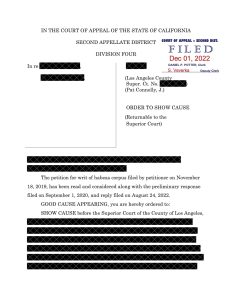California’s felony sentencing guidelines are established by the California Penal Code and the California Rules of Court.
- The California Penal Code (Section 1170) sets forth the basic framework for felony sentencing in the state, including the three strikes law, determinate sentencing, and alternative sentencing options such as drug treatment programs and community service.
- The California Rules of Court (Rule 4.408) provides more detailed information on the sentencing process, including the procedures for imposing and challenging a sentence, the calculation of good conduct credits, and the rules governing parole and probation.
 Los Angeles Criminal Defense and Appeals Lawyer Blog
Los Angeles Criminal Defense and Appeals Lawyer Blog












